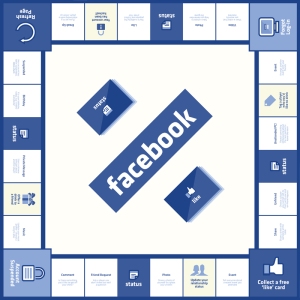Conquering The World, One Click At a Time
As I open up my laptop in the living I hear my mom yell from the kitchen.
“Can you Google where to buy Hershey’s chocolate in Munich,” she screams.
But since when has Google replaced the word “ask” in her dictionary?, I think to myself.
Are online giants becoming too large? or can there never be enough when it comes to companies such as Google, Facebook and Apple
Well Lets take Google for example,
According the article “Everybody wants to rule the world” in The Economist, Google has 68% of the market of web searches in America and more than 90% in many European countries
Now that’s a huge slice of the pie.
The article “un-google” in The Economist, states that Google has by far the most mass, with an American market share of 43% as of April, which reaches 50% counting AOL, an internet property that uses Google’s search technology.
This number compares with 28% for Yahoo!; 13% for MSN, which belongs to Microsoft; and 6% for Ask.
From these statistics, it is clear that Google has the so called Monopoly for search engines.
But just how much is too much when it comes to the online world?
According to Peter Thiel, one of the founders of Pay Pal, monopolies add “entirely new categories of abundance to the world”
Along with this thought,the article “Everybody just wants to rule the world” from The Economist, gives the reader a view on some of the positive aspects of having an online monopoly.
For example, the profits monopolies can bring in, allow bold long-term plans and ambitious research projects that “firms locked in competition can’t dream of,” says the author of “Everybody wants to rule the world“
Lets take Apple for example..
The Apple company has a huge monopoly on hardware with their products such as phones, laptops, ipads and ipods. Since apple brings in so much revenue, it can afford to take risks with new ideas and projects, thus creating even better and more innovative products for the consumer.
Success breeds success.
– Thenextweb.com
According to the article ” Eveybody wants to rule the world”, in The Economist, for those who argue that monopolies cut out competition, this can be just the opposite.
A “clever startup does not try to compete directly with an incumbent. It picks a seemingly unimportant market which it can monopolize”. – The Economist
If a person trying to enter into the online world sees a large online monopoly , there is more incentive to create something different and perhaps more innovative..something to Destroy that Monopoly
This can be seen with Itunes, the monopolious kingdom of music. Itunes, is in fact a large company where people go to purchase music singles for about a buck. But there are many sites that have been created such as spotify or youtube which compete with Itunes and offer a chance for users to listen to music as well
Both the article in The Economist as well as
“Facebook, Twitter, iTunes, Google: The rise of digital monopolies” mention the online social networking king: Facebook.
The concept of a monopoly has allowed certain social media sites to flourish, through the networking effect… made possible by being a monopoly.
Social networks only work when people use the same ones, a natural monopoly in itself. According to an article in Thenextweb.com, it is “impractical for people to communicate with their friends across different social networks”.
How are you supposed to communicate with Sally if she’s on “Myspace” and your on “Facebook”?
“Facebook, Twitter, iTunes, Google: The rise of digital monopolies” uses a 2011 French court ruling, banning the mention of specific social networks in the media, to address the issues surrounding digital monopolies, as well as the causes for their emergence. The authors analysis focuses more heavily on the cultural influences that have caused the dominance of these monopolies
In the social media market, the author makes the correct observation that these markets naturally have a tendency to be monopolized, as these platforms provide positive externalities. For one the more consumers are on the platform, the more likely one is to find ones friends and be able to communicate with them. Hence there is a natural tendency for people to flock to the same social network
That being said, in order for the population to love Facebook and many other of the online giants.. we as the consumer want them to be large and powerful.
As stated in the article from The Economist “As the social network attracted new members it offered more people for all those members to interact with, which increased the benefits of membership, which attracted more members”.
And after all, what would Facebook be with only a few users?…..Facepage?
Like Facebook, Amazon, and other tech giants, these companies benefit from the “network effects” whereby the popularity of a service attracts more users and thus becomes “self-perpetuating” .
Take a company like Google and thanks to its many users, “It collects more data than any other company and is better at mining those data for insights” states the article from The Economist …
why move on to a different site if google or Facebook offers the consumer everything they wanted and more..
I do not believe that we should regulate what an online provider can offer to its users.
This creates a market open for new ideas and creativity, the perfect grounds for future websites. Just as the article in The Economist stated, it is only a matter of time before someone comes up with a better idea; a newer fresher and faster door into the online world.
I also do not think that as the consumer, we should have to worry about one site becoming too powerful in the online world. Things come and go. Easily replaced, if these online monopolies aren’t up to date with the latest gadgets trends and technologies, these companies can disappear just as quickly as they came.
“treating monopolies in the digital realm just like their bricks-and-mortar—or oil-well-and-pipeline—predecessors would be very bad for innovation and growth”
– The Economist.
There is a sort of Darwinian principle that arises when it comes to online companies and monopolies. Due to the strong and stable competition from companies like Facebook and Google, not many online companies make it.. but those who do, bring new ideas into the digital field.
Since the entry barrier is low, there can be great competition which allows more start ups and new ideas to flourish, unlike in the offline world where monopolies are be more dangerous seeing that creating competition is financially more expensive
Yahoo for example has seen the glitch in Google.
“In contrast to the quasi-religious faith that Google places in its mathematical algorithms”, says Eckart Walther, one of Yahoo!’s search bosses, Yahoo! is “about combining the best of people with the best of technology”.
The idea, Mr Walther says, is to “look not only at links between websites but also links between people” and thus to use “social search” to solve “subjective” queries.
Caterina Fake, who came to Yahoo! as the co-founder of FlickR, a popular photo-sharing site it bought last year, gives her own personal example of her search for a lamp shade.
When Fake typed this request into Google, A search returned lots of lamp stores, but all in generic styles.
A search on Yahoo!’s “MyWeb”, by contrast, took into account the eclectic tastes of her friends and came up with the more fashionable, unconventional lamp shade that she was after.
Yet According to the article “ Everybody wants to rule the world” in The Economist, some still worry that Google could prove to be the ultimate digital monopoly. They do not think that its reason for being is primarily online search or the advertising business; they see it as being in the business of mining any and all data it can accumulate for new profit streams.
The “data hunger” such a goal demands is the main reason, they argue, why Google is entering markets as diverse as self-driving cars, smart homes, robotics and health care…
The online monopoly battle is not over yet.


